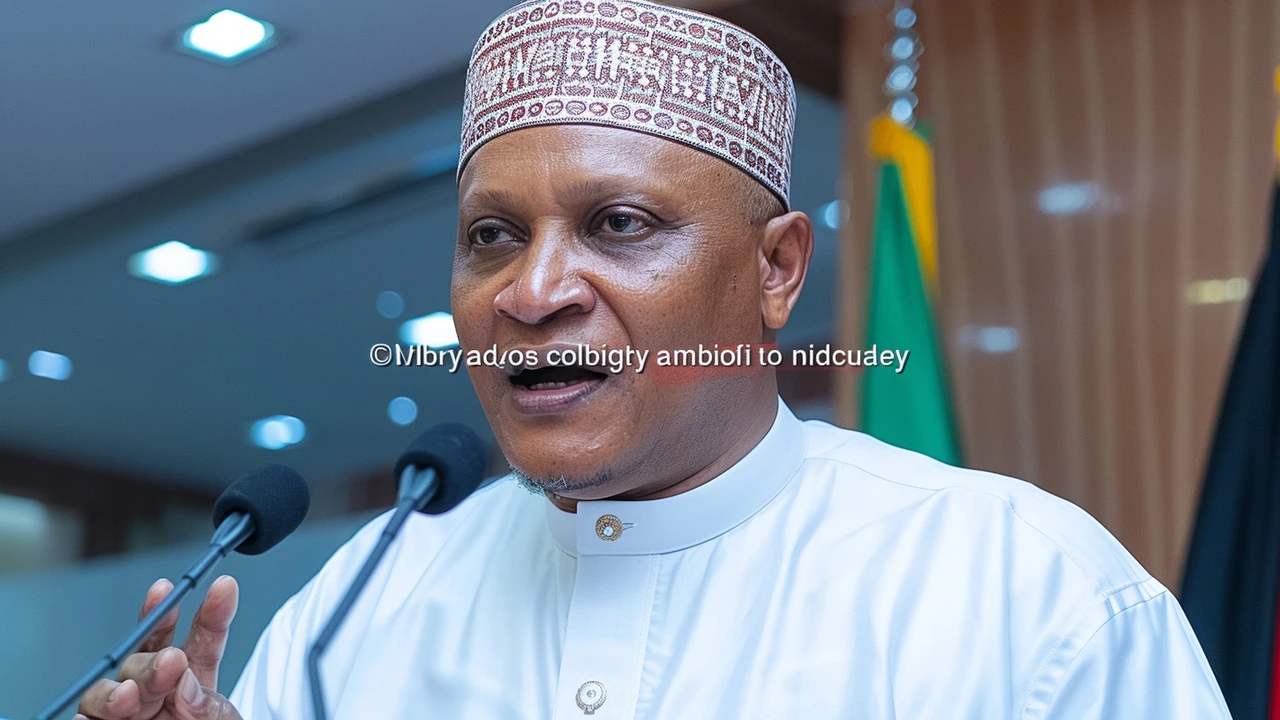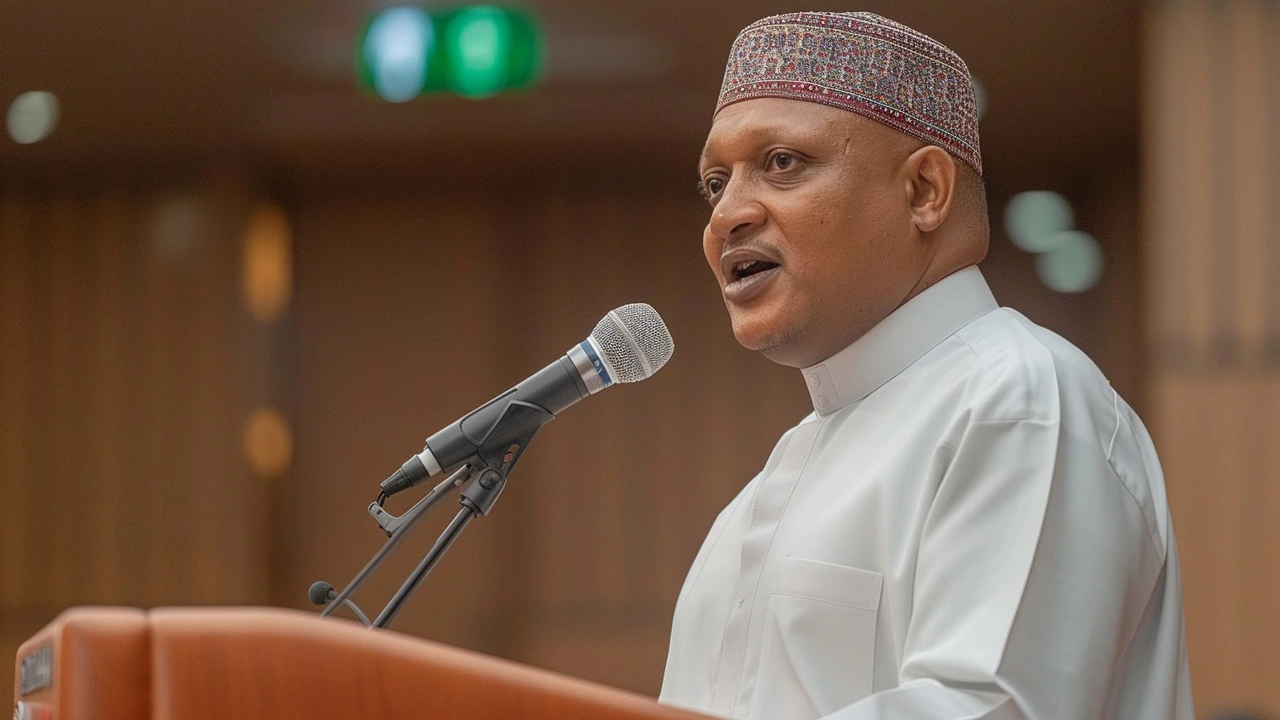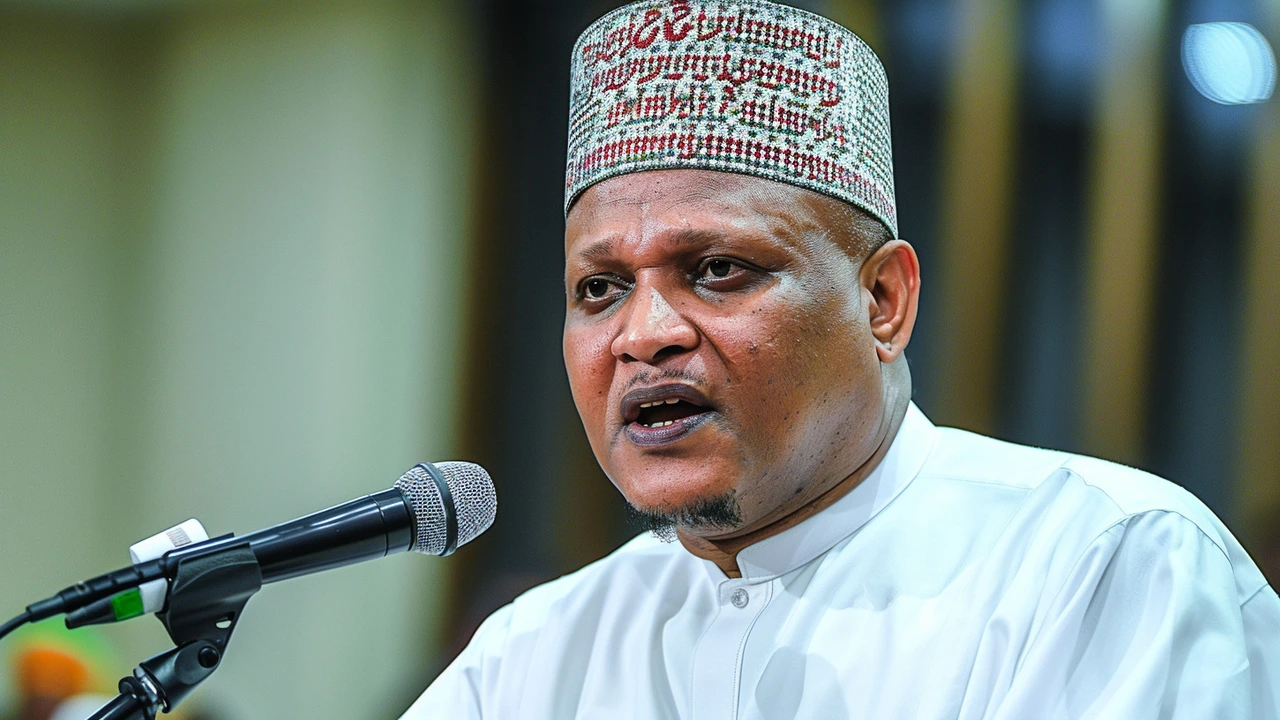President Bola Ahmed Tinubu's First Year: A Year of Transformative Change
In a recent statement, Nigeria’s Minister of Information and National Orientation, Mohammad Idris, hailed the first year of President Bola Ahmed Tinubu's administration as a pivotal period marked by significant progress across various sectors. According to Idris, Tinubu has laid a robust foundation designed to propel the country toward stability, prosperity, and security, setting the stage for a future rich with opportunities.
Central to this transformative journey is Tinubu's 'Renewed Hope Agenda,' an ambitious eight-point plan aimed at rejuvenating Nigeria’s economic, social, and security landscape. Among the key initiatives under this agenda is the removal of fuel subsidies, a bold move that frees up approximately $10 billion annually. This substantial sum has been redirected towards critically important areas such as healthcare, education, infrastructure, and national security, ensuring that public funds are utilized to benefit the wider population directly.
Economic Reforms and Financial Redistribution
The removal of fuel subsidies stands out as one of the administration's most impactful economic reforms. This action has not only diminished fuel importation by 50% but has also significantly increased the revenues of state and local governments. These funds are now being deployed to improve social services and infrastructural development, furthering Tinubu’s vision for a more equitable and prosperous Nigeria.
The economic reforms have extended beyond fuel subsidies. Efforts to stabilize the nation’s currency have also been prioritized. By harmonizing foreign exchange rates, the administration has bolstered the economy and strengthened the Naira, delivering on one of Tinubu’s key campaign promises. This monetary policy adjustment has significantly invigorated the economic environment, fostering confidence among investors and leading to an influx of both domestic and foreign investments.

A Robust Security Apparatus
Another cornerstone of Tinubu’s administration has been the reinforcement and modernization of Nigeria’s security apparatus. Investments in advanced military equipment and training have yielded notable results. Reports indicate that over 4,600 hostages have been liberated, while 9,300 criminals have been neutralized, and an additional 7,000 terrorists and bandits have been apprehended. These outcomes underscore the administration's commitment to restoring peace and ensuring the safety of Nigerian citizens.
The administration’s efforts are not limited to combating terrorism and banditry. Security measures in the Niger Delta have also been significantly enhanced, leading to a surge in oil production and stabilization of natural gas output. These advancements are crucial for a country whose economy heavily relies on its natural resource sectors.
Addressing Food Security: A National Priority
Tinubu's proactive stance on food security has been another highlight of his first year in office. Recognizing the critical importance of agriculture to national stability, Tinubu declared a state of emergency on food security. This declaration was followed by the restructuring of the Ministry of Agriculture into the Ministry of Agriculture and Food Security. The newly focused ministry has launched several initiatives, including the National Agricultural Development Fund and the Dry Season Farming Initiative, to ensure a steady and reliable food supply for the nation.
These programs are designed to support farmers, enhance agricultural productivity, and mitigate the risks associated with reliance on seasonal farming. By investing in modern agricultural techniques and providing the necessary resources to farmers, the administration aims to make Nigeria more self-sufficient and resilient in the face of global food supply challenges.

Commitment to Infrastructure and Social Welfare
Infrastructure remains a critical area of focus for Tinubu's administration. Plans for major infrastructure projects are already underway, with investments earmarked for developing road networks, bridges, and public transportation systems. These projects aim to ease the movement of goods and people, thereby catalyzing economic activities and improving the quality of life for Nigerians.
Complementing the infrastructure initiatives are various social welfare programs designed to alleviate the burden on the nation’s most vulnerable populations. Examples include subsidized bus transport, free train services, and an array of support policies for farmers and small businesses. These measures not only offer immediate relief but also foster long-term economic sustainability by empowering citizens and creating more opportunities for growth.
Looking Ahead: The Next Three Years
As President Tinubu's administration looks ahead to the next three years, there is a clear and resolute focus on building upon the foundations laid in his first year. Special Adviser on Information and Strategy to the President, Bayo Onanuga, emphasized that the administration is committed to fulfilling all campaign promises and driving forward with plans for significant infrastructure projects and investments in the oil and gas sector.
With a strategic approach towards economic reform, security enhancement, food security, and infrastructure development, Tinubu’s administration is well-positioned to lead Nigeria towards a future marked by abundance and prosperity. The journey may be long and the challenges complex, but with the groundwork already laid, the potential for substantial progress and positive change is clear and promising.
In conclusion, Tinubu’s first year in office has indeed set the stage for a transformative journey. By addressing critical economic and security challenges, prioritizing food security, and embarking on ambitious infrastructure projects, the administration has demonstrated a genuine commitment to building a better Nigeria. As the country moves forward, the enduring impact of these foundational reforms will undoubtedly steer Nigeria towards a more stable, prosperous, and secure future.















